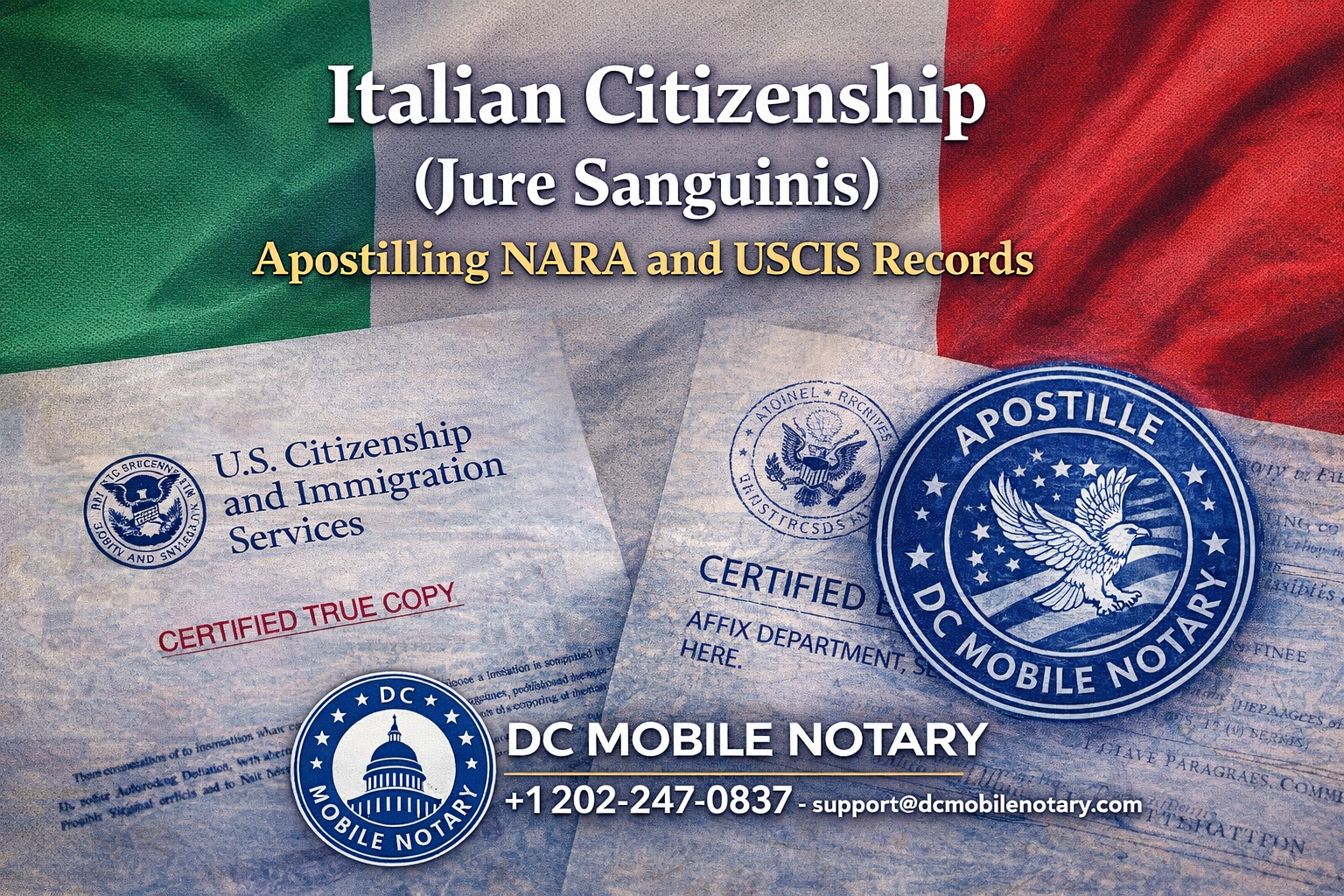Types of Power of Attorneys that Require Notarization and Witnesses

September 26, 2023

Introduction:
Begin by introducing the concept of a power of attorney (POA) and its significance in legal matters. Explain that not all POAs are created equal; some require additional steps like notarization and witnesses. Give a brief overview of what the article will cover.
1. General Power of Attorney:
A General Power of Attorney (POA) is a legal document that grants broad powers to an appointed agent (also known as an attorney-in-fact) to act on behalf of the principal (the person who creates the POA). These broad powers can include managing financial affairs, making legal decisions, signing documents, and more.
Whether a General POA requires witnesses depends on the laws of the specific jurisdiction (state or country) where it is being executed. In many cases, a General POA may not require witnesses, and notarization alone may suffice to validate the document. However, some jurisdictions may have specific requirements regarding witnesses.
It's crucial to check the laws and regulations in your jurisdiction or consult with a legal professional to ensure that you are following the correct procedures when creating a General Power of Attorney. Laws can vary, and compliance with the specific requirements is essential to ensure the validity and enforceability of the document.
2. Durable Power of Attorney:
A Durable Power of Attorney (DPOA) is a type of power of attorney that remains in effect even if the person who created it (the principal) becomes incapacitated or mentally incompetent. It is designed to ensure that someone can manage the principal's affairs and make decisions on their behalf in situations where the principal is unable to do so themselves.
As for whether a Durable Power of Attorney requires witnesses, the answer, once again, depends on the laws of the specific jurisdiction where it is being executed. In many cases, a Durable POA does require witnesses, and notarization may also be necessary to validate the document. However, the exact requirements can vary from one jurisdiction to another.
3. Limited or Special Power of Attorney:
A Limited or Special Power of Attorney is a legal document that grants specific, limited powers to an appointed agent (attorney-in-fact) to perform certain actions or make decisions on behalf of the principal. Unlike a General Power of Attorney, which provides broad authority, a Limited or Special Power of Attorney is narrowly focused and typically specifies the exact powers the agent has.
Whether a Limited or Special Power of Attorney requires witnesses depends on the laws of the jurisdiction (state or country) where it is being executed. In many cases, these types of POAs may require notarization, but the requirement for witnesses may vary.
Some jurisdictions may allow Limited or Special POAs to be valid with only notarization, while others may require one or more witnesses to attest to the document's authenticity and the principal's capacity at the time of signing. The exact requirements can differ from one place to another.
To ensure that your Limited or Special Power of Attorney complies with the legal requirements in your jurisdiction, it is essential to consult with a legal professional who can provide guidance on whether witnesses are necessary and how to execute the document properly. They can also help you draft a POA that meets your specific needs while adhering to local legal requirements.
4. Medical Power of Attorney:
A Medical Power of Attorney (MPOA), also known as a Healthcare Power of Attorney or Healthcare Proxy, is a legal document that allows an individual (the principal) to appoint someone (the agent or attorney-in-fact) to make medical decisions on their behalf if they become unable to do so due to incapacitation or inability to communicate their wishes.
The reason an MPOA typically requires both witnesses and notarization is to ensure its legal validity and to provide a reliable record of the principal's intent.
It's important to note that the specific requirements for witnesses and notarization may vary by jurisdiction, so it's crucial to consult with a legal professional in your area to ensure that your Medical Power of Attorney complies with the laws and regulations applicable to your location.
5. Financial Power of Attorney:
A Financial Power of Attorney (FPOA) is a legal document that grants an individual or agent (known as the attorney-in-fact) the authority to manage financial and legal matters on behalf of another person (the principal). This authority can be broad, encompassing various financial transactions, or it can be limited to specific financial tasks, depending on the terms specified in the document.
Whether a Financial Power of Attorney requires witnesses depends on the laws of the jurisdiction (state or country) where it is being executed.
In summary, while a Financial Power of Attorney typically does require witnesses in many jurisdictions, it's a good practice to have the document notarized to enhance its authenticity and acceptance. However, legal requirements can differ, so it's crucial to seek legal advice and adhere to the specific regulations in your area when creating a Financial Power of Attorney.
6. Real Estate Power of Attorney:
A Real Estate Power of Attorney (REPOA) is a legal document that grants an individual (the attorney-in-fact or agent) the authority to make decisions and take actions related to real estate on behalf of another person (the principal). This document can be used for various real estate transactions, such as buying, selling, leasing, managing, or refinancing property.
Benefits of Notarization and Witnesses:
Enhanced Legitimacy: Notarization involves a trusted notary public verifying the identity of signatories, confirming their willingness, and providing a reliable record of the document's execution. Witnesses add additional credibility by attesting to the document's authenticity, which enhances its legitimacy.
Prevention of Fraud and Disputes: Notarization and witness signatures act as safeguards against potential fraud or disputes. They provide evidence that the document was executed voluntarily, reducing the likelihood of challenges to its validity.
Acceptance and Trust: Many institutions, including financial entities and healthcare providers, require notarized and witnessed documents for acceptance. Having these elements in place ensures that the document is more likely to be trusted and respected when presented to third parties, facilitating its intended purpose.
Conclusion:
In conclusion, understanding the nuances of various types of Powers of Attorney and their respective requirements for notarization and witnesses is crucial in ensuring the effectiveness and validity of these essential legal documents. While some forms of POAs, like General or Financial Powers of Attorney, may or may not necessitate witnesses depending on jurisdictional regulations, others, such as Medical and Real Estate Powers of Attorney, commonly require the presence of witnesses and notarization. These formalities serve to bolster the legitimacy of the documents, mitigate the risk of fraud, and provide a strong foundation for executing the principal's wishes.
It is paramount for individuals to familiarize themselves with the specific legal requirements in their jurisdiction when creating a Power of Attorney, as these requirements can vary significantly. Seeking professional legal guidance is highly advisable to ensure compliance with local laws and to tailor the document to one's precise needs.
In the end, the careful execution of a Power of Attorney, complete with proper notarization and witnesses when necessary, empowers individuals to navigate complex legal and healthcare matters with confidence, offering peace of mind for both principals and their chosen agents. By adhering to these legal formalities, individuals can ensure that their intentions are faithfully carried out and that their interests are safeguarded, even in unforeseen circumstances.

‹ Previous
Next ›

Apostilling Articles of Incorporation for International Use

February 17, 2026

Italian Citizenship (Jure Sanguinis): Apostilling NARA & USCIS Records

February 13, 2026





